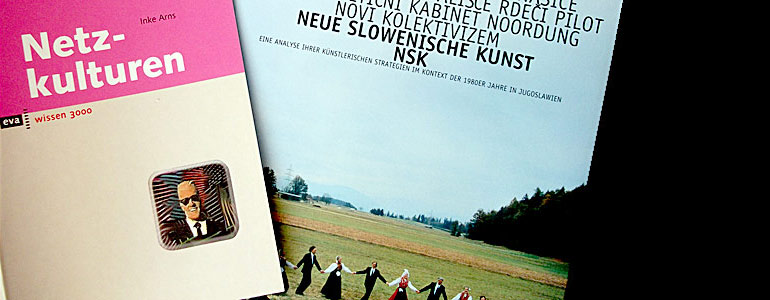
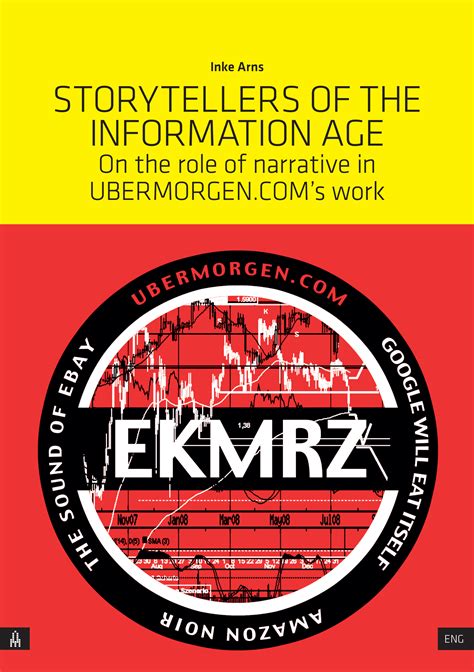
Inke Arns: STORYTELLERS OF THE INFORMATION AGE. On the role of narrative in UBERMORGEN.COM’s work
PostScript UM #2
Series edited by Janez Janša
Aksioma – Institute for Contemporary Art, Ljubljana, 2014
https://aksioma.org/inke-arns-storytellers-of-the-information-age-on-the-role-of-narrative-in-ubermorgen-coms-work-2
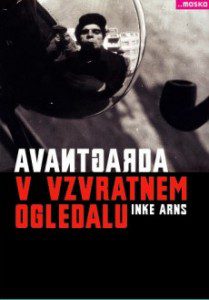
Inke Arns: Avantgarda v vzvratnem ogledalu
translated by Mojca Dobnikar. Ljubljana: Maska (Transformacije 21), 320 pages, Illustrations in b/w, Format 170 X 240 mm, Slovene language, 2006 [Slovenian] www.maska.si
21.11.2006 | “Avantgarde in the Rearview Mirror, On the Paradigm Shifts of Reception of the Avantgarde in (ex) Yugoslavia and Russia from the 80s to the Present”, a book by a young and acclaimed German theoretician Inke Arns, an expert in contemporary Slovenian and East European art, has been published in the book series Transformacije. The book examines the paradigm shift in the way artists reflect on the historical avant-garde in visual and media art projects, or to be more precise, it analyzes two phases or significant paradigm shifts in the artistic reception and valuation of historical avant-garde in the 80s and 90s.
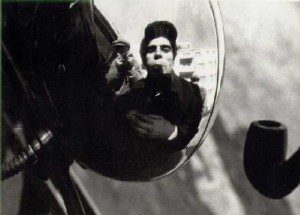
Inke Arns: Objects in the mirror may be closer than they appear! Die Avantgarde im Rückspiegel. Zum Paradigmenwechsel der künstlerischen Avantgarderezeption in (Ex-) Jugoslawien und Russland von den 1980er Jahren bis in die Gegenwart
Dissertation, Humboldt-Universität zu Berlin, Philosophische Fakultät II, published on 22 November 2004, http://edoc.hu-berlin.de/docviews/abstract.php?id=20894 [D]
The dissertation researches a paradigmatic shift in the way artists reflect the historical avantgarde in visual and media art projects of the 1980s and 1990s in (ex-)Yugoslavia and Russia. The reasons for this paradigm shift can be found in the changing relationship to the notion of utopia, both in its political and its artistic connotation. In the 1980s, the reception both in socalled Soviet postutopianism (Il’ja Kabakov, Ėrik Bulatov, Oleg Vasil’ev, Komar & Melamid, Kollektive Aktionen) and in the Yugoslav retro-avant-garde (NSK, Mladen Stilinović, Malevič from Belgrade etc.) is characterized by a ‘discourse archeological’ interest in the potentially totalitarian elements of the avant-garde. Yet this point of view changes fundamentally during the 1990s in a younger generation of artists (neoutopianism and retroutopianism). Retroutopianism (Marko Peljhan, Vadim Fishkin) no longer primarily equates the utopianism of the avant-garde with totalitarian tendencies, but is reexamined with regard to its mediatechnological projections and designs, which were not only developed by individual avantgarde artists and theoreticians (Velimir Khlebnikov, Bertolt Brecht) but also by scientists and engineers during the early 20th century (Nikola Tesla, Herman Potočnik Noordung). Artistic projects of the time reveal an increasing ‘media-archeological’ fascination for the avantgarde’s early utopian fantasies of technology. This fascination, in turn, is symptomatic for a significant change in the relationship to utopia and utopian thinking on the whole: utopian thinking per se separates from its unambiguously negative, political-totalitarian aftertaste (understood as ‘utopianism’) and takes on a new positive political connotation. It is now understood as an emancipatory or visionary-spectral potentiality (‘utopicity’).
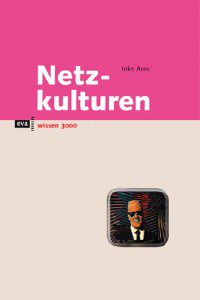
Inke Arns: Netzkulturen
Hamburg: Europäische Verlagsanstalt (eva), 2002 [German]
Net culture is the alternative culture of the 21st century. With the rapid spread of the internet, a large number of independent initiatives have emerged worldwide that use the net for political and artistic work and test new forms of communication and artistic work and try out new forms of communication. Arns, a proven expert on the new net communities, documents the latest developments and presents important initiatives from the fields of art, music, politics and media criticism.
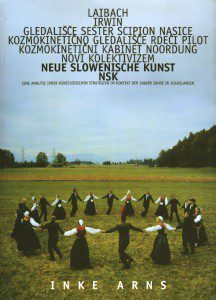
Inke Arns: Neue Slowenische Kunst (NSK) – eine Analyse ihrer künstlerischen Strategien im Kontext der 1980er Jahre in Jugoslawien
Regensburg: Museum Ostdeutsche Galerie 2002 [German]
Inke Arns’ first, now available, complete overview of the artist collective Neue Slowenische Kunst (NSK) presents the most important subdivisions of the NSK – responsible for music, visual art, dance/performance and graphic design (Laibach, Irwin, Gledalisce Sester Scipion Nasice/Kozmokineticno Gledalisce Rdeci Pilot/Kozmokineticni Kabinet Noordung, Novi Kolektivizem). The monograph also presents the theoretical and artistic concepts of NSK, such as retrogarde and over-identification, in the social and political context that developed in Slovenia and Yugoslavia during the 1980s. The Neue Slowenische Kunst engaged in subcultural escalation games that referred to the existence of nationalist myths and the existence of the (totalitarian) desire for voluntary subordination. The philosopher and psychoanalyst Slavoj Zizek called this subversive strategy “traversing the phantasm”. Inke Arns interprets the radical artistic strategies employed by the NSK in the 1980s as an aesthetic implementation of the theories formulated since the early 1980s by the Slovenian Lacan school around Slavoj Zizek. This school became an important theoretical foundation for the self-perception of Ljubljana’s subcultural scene, which in turn was to become the most important force for the emergence and rediscovery of civil society in Slovenia. In retrospect, Neue Slowenische Kunst has often been declared the catalyst of Slovenian pluralization and democratization processes. Inke Arns explores the question of why, paradoxically, it was precisely the totalitarianism of the intellectual terrorists of the NSK that contributed significantly to the democratization of a semi-totalitarian system. The publication is supplemented by an interview that the author conducted with Irwin in Ljubljana in March 2000.